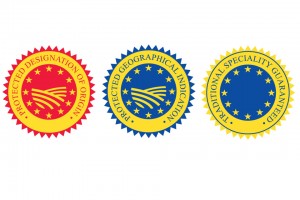Productivity from below ( ESRC March 2019- March 2022
Academic and policy interest in productivity rarely captures the experiences of an important segment of the small firm population: micro-businesses (1-9 employees). The informal and opaque management processes in such firms pose challenges for the assessment of productivity and development of practical interventions. This project uses rigorous academic research co-produced with non-academic stakeholders to design and implement policies that support management to boost productivity in such firms. Our context – disadvantaged communities managing and working in the catering, retail and creative sectors in the West Midlands – serve as a critical case to improve knowledge and practice on the relationship between management and engagement practices and performance in micro-businesses.
The research is collaborative and comprises three leading applied centres with researchers from a variety of disciplinary backgrounds: the Centre for Research in Ethnic Minority Entrepreneurship (CREME), the Enterprise Research Centre (ERC) and City-REDI (Regional Economic Development Institute). They work alongside non-academic stakeholders that rarely feature in ‘mainstream’ business support ecosystems (despite their reach in myriad micro-enterprise networks): Ashley Integrates (an award-winning social enterprise with a keen interest in promoting employability of migrants), the Bangladeshi Network (comprising four groups with local and national reach into the sector), Citizens UK (a national civil society alliance) and Punch Records (a business with a strong social mission to promote artists from deprived background).
A multi-method is adopted comprising five WPs that aim to develop insights into micro-businesses that can be used to develop interventions to promote productivity. WP 1 locates the project in the context of a recent national study on the characteristics of microbusinesses. Further analysis will highlight challenges facing those micro-businesses that have a desire to improve performance and grow. A granular understanding of management and engagement practices in micro-businesses will be generated in WP2 by in-depth qualitative investigation of 24 case studies of firms over an extended period of time. Manager and worker perspectives on the organization of work are evaluated. This knowledge is shared and utilized in WP 3 with a range of non-academic stakeholders, with the aim of mapping and mobilizing the business support ecosystem. Policy options will be identified, which will then – in WP4 – be tested and evaluated with micro-business owners who have the ambition to participate in bespoke change programmes to boost productivity. An active programme of knowledge exchange and dissemination (WP5) will cross-cut the project and will comprise a series of journey mapping knowledge exchange co-produced workshops, involving micro-business owner/managers and their employees, and external support agencies. These are designed to understand how involvement in the study has influenced any change to initial management style towards introducing new management and engagement practices, and how these have improved productivity. WP5 will also inform dissemination, and the qualitative component of the formative and summative evaluation.
The project will produce important practical outcomes for businesses my providing support for evidence-based interventions that will benefit around 30 micro-businesses that participate in customised programmes designed to upgrade leadership and management skills leading to a boost in productivity. Insights from their experiences and will promote greater understanding of ‘what works’ that can guide practitioners in other contexts.
The project will also actively support the development of a more responsive and inclusive business support ecosystem in the West Midlands by mobilising ‘mainstream’ and non-traditional intermediaries (for example, our non-academic partners) and via multiple pathways of engagement.
Geographical indications of origin and productivity after Brexit (November 2018 – October 2020)
This project aims to establish whether Geographical Indications of Origin for food products (GIs) are an effective policy instrument for boosting growth and productivity and, therefore, whether developing a governance system for UK GIs should be a policy priority post-Brexit. Post-Brexit, the application of the current EU system for the approval and governance of GIs in the UK will cease, and GIs in the UK will be subject to the more basic provisions of the World Trade Organisation TRIPs Agreement. As in other non-EU countries, this creates the potential for the UK to develop an independent system for the governance of GIs which may be more responsive to UK producer and consumer demands and create greater benefits for UK growth and productivity.
Our study will ,perhaps surprisingly, be the first to consider the growth and productivity benefits of GIs and will provide an evidence-base for effective policy development in this area post-Brexit. We will address the following research questions:
(1) Economic value – Have GIs improved the growth and/or productivity of the firms they cover? Have GIs led to purely local benefits (and displacement elsewhere in the UK) or national benefits in terms of growth or productivity?
(2) Governance of UK GIs – How should GIs be approached post-Brexit? Does the evidence support the development of a new UK governance arrangement? What should this look like? How can the UK best use the GI framework to maximise its productivity benefits?
The project will use a combination of quantitative and qualitative approaches to evaluate the impact of GIs, assess international best practice and develop policy proposals for development post-Brexit.
How to improve Productivity in the Manufacturing Supply Chain – Diffusing Excellence across the UK Casting and Metal-forming Sectors : Innovation Fellowship. (January 2018 – February 2021)
The aim of this Fellowship is to identify key practices which can contribute to productivity upgrading in each sector and to explore potential approaches to stimulating their diffusion to lower productivity firms. Which practices have contributed to significant productivity improvements and is it possible to quantify the impacts? Is it possible to quantify the potential productivity and performance gains from adoption of identified practices and what are the barriers to the adoption of leading-edge practices across the metals supply chain? The Fellowship is being supported by two of the leading trade associations in the Advanced Manufacturing supply chain – the Cast Metals Federation and the Confederation of British Metal-forming, and their member companies. The Research Fellow working on this project is Dr Temi Akinremi.
Data collection for the first stage of this project is now complete and the first results from the project will be presented to industry representatives on 22nd November. Discussions have also been held with industry representatives to shape research activity in Years 2 and 3 of the fellowship
Industrial Strategy Project – Micro-business Britain. (November 2017 – June 2018)
The ERC has been awarded additional funding from the ESRC to undertake a project which will be the most detailed investigation ever undertaken of the UK’s micro-businesses, their growth potential and challenges. Central to the project will be a large-scale survey international survey of micro-firms (covering c. 8-10k firms) which will provide place-based data to identify specific challenges these micro-businesses face in terms of growth and raising productivity. Survey work will take place in the UK, Ireland and the US. Publication of a draft headline report “Micro-business Britain” providing an overview of key insights from the UK and international benchmark survey datasets is likely to be April 2018.












